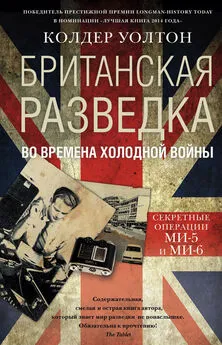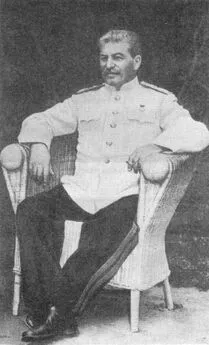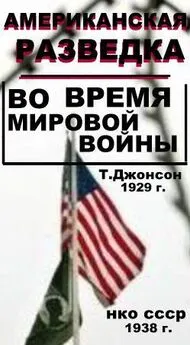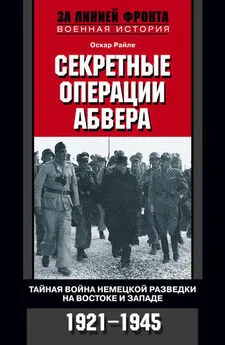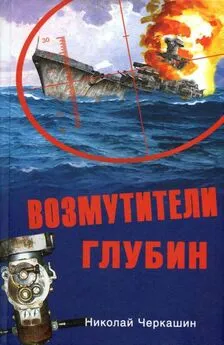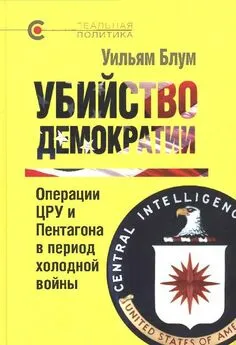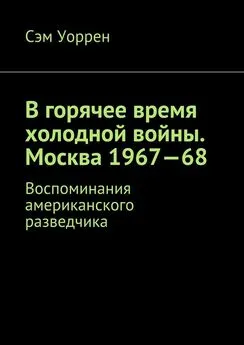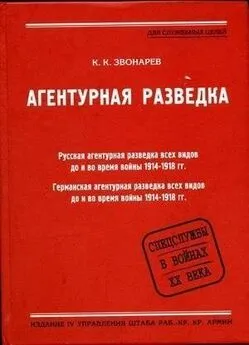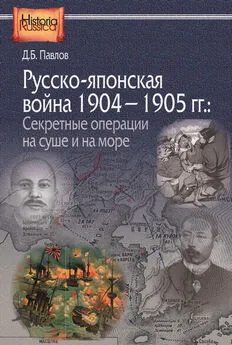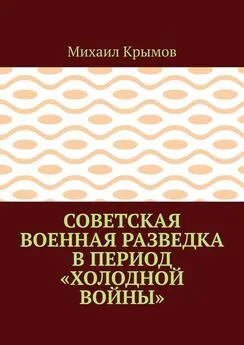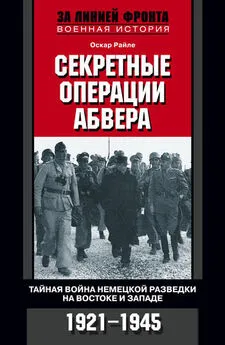Колдер Уолтон - Британская разведка во времена холодной войны. Секретные операции МИ-5 и МИ-6
- Название:Британская разведка во времена холодной войны. Секретные операции МИ-5 и МИ-6
- Автор:
- Жанр:
- Издательство:Центрполиграф
- Год:2016
- Город:Москва
- ISBN:978-5-227-06483-7
- Рейтинг:
- Избранное:Добавить в избранное
-
Отзывы:
-
Ваша оценка:
Колдер Уолтон - Британская разведка во времена холодной войны. Секретные операции МИ-5 и МИ-6 краткое содержание
Известный ученый К. Уолтон представляет тайную историю конца Британской империи и участие в этом процессе британской разведки. Автор дает панорамный обзор секретных действий правительства: от шпионажа времен войны в пустынях Северной Африки до сомнительных закулисных контактов с африканскими диктаторами, от карательных акций против повстанческого движения в джунглях Малайи, Кении и горах Кипра до военных действий в Палестине и на Аравийском полуострове. Уолтон раскрывает заговоры ЦРУ и тайную деятельность в британских колониях, убийства от рук агентов КГБ и неудавшиеся перевороты, спонсируемые правительствами Великобритании и США на Ближнем Востоке, главной целью которых было овладеть нефтью и другими природными ресурсами. Книга основана на недавно рассекреченных документах разведки и частных собраниях из целого ряда архивов.
Британская разведка во времена холодной войны. Секретные операции МИ-5 и МИ-6 - читать онлайн бесплатно ознакомительный отрывок
Интервал:
Закладка:
Помимо исследования письменных документов я провел ряд бесед (в общей сложности двенадцать) с бывшими офицерами разведки. Но общая методология написания этой книги основывалась больше на письменных документах, нежели беседах, потому что, исходя из опыта, лучше опираться на письменные документы, особенно когда их авторы и не думали, что они будут рассекречены, как было со всеми документами МИ-5 и JIC того времени, чем на беседы. Любой человек, знакомый с залом суда, может подтвердить, что даже свидетельские показания человека, исполненного самых благих намерений, могут быть ненадежны – память может легко подвести.
Ссылки на примечания и пояснения помещены в конце абзацев, а не в их середине. Это сделано с намерением сделать текст более легким для чтения, не загроможденным ссылками. И хотя некоторые читатели могут счесть это неудобным с научной точки зрения, те из них, которые хотят проследить цитаты, смогут найти их в примечаниях и пояснениях. Автор будет счастлив ответить на вопросы, которые можно задать на www.calderwalton.com.
Примечания
1Le Carre, The Honourable Schoolboy. P. 35.
2«Terrorist Bomb in Whitehall», The Times (17 Apr 1946); Burt, Commander Burt of Scotland Yard . P. 126–127; The National Archives London [TNA] CO 537/1723 «Terrorist outrages: extension to UK».
3Ferguson, Colossus. P. 112.
4Walton and Andrew, «Still the missing dimension» in Major and Moran (eds), Spooked ; классическое описание разведки как «недостающего измерения» содержится у Andrew and Noakes (eds), The Missing Dimension: Governments and Intelligence Communities in the Twentieth Century.
5Bennett, «Declassification and release policies of the UK’s intelligence agencies»; Gill, «Reasserting control: recent changes in the oversight of the UK intelligence community»; Wark, «In Never Never Land? The British archives on intelligence»; Aldrich, The Hidden Hand . P. 1—16.
6Примеры более ранних исследований, в которых игнорируется британская разведка, включают Mansergh (ed.), Transfer of Power in India series; more recent studies that still overlook the subject include Clayton, «Deceptive might»: imperial defence and security, 1900–1968» in Louis (ed.), The Oxford History of the British Empire ; Bayly and Harper, Forgotten Wars ; Heinlein, British Government Policy and Decolonisation ; Hyam, Britain’s Declining Empire . Среди меньшинства исследований, в которые включена британская разведка, есть следующие: Bloch and Fitzgerald, British Intelligence and Covert Action: Africa, the Middle East and Europe Since 1945 ; French, Liberty or Death: India’s Journey to Independence and Division ; French, The British Way in Counter-Insurgency.
7Clarke, The Last Thousand Days of the British Empire ; Hennessy, Never Again: Britain 1945–1951. P. 215.
8Hyam, Britain’s Declining Empire . P. XIII–XV.
9Точка зрения Уайтхолла в 1957 г. на то, что немногие колонии получат независимость, изложена у Hyam and Louis (eds), British Documents on the End of Empire Project [ BDEEP ] : The Conservative Government and the End of Empire doc [3], Sir Norman Brook, «Future constitutional development in the colonies» (6 Sept 1957); Herman, Intelligence Power in Peace and War ; Macleod, «Trouble in Africa», Spectator (31 янв. 1964).
10Hyam, Britain’s Declining Empire . P. XIV, 261, 262; Herman, Intelligence Power in Peace and War.
11Ben Macintyre, «The Truth Will Out», The Times (10 мая 2011); Ben Macintyre, «Mau Mau and So Much More», The Times (16 апр. 2011); Ben Macintyre, «Brutal Beatings and the «Roasting Alive» of a Suspect: What Secret Mau Mau Files Reveal» (13 апр. 2011); Banton, «Destroy?», «Migrate?», «Conceal?»: British strategies for the disposal of sensitive records of colonial administrations at independence».
12Ian Cobain and Richard Norton-Taylor, «The Secrets that Shamed the Last Days of Empire», Guardian (18 Apr 2012); Ben Macintyre, «A Mistake or Murder in Cold Blood?» The Times (28 апр. 2012); Mutua and others v Foreign and Commonwealth Office [2011] EWHC 1913 (QB).
Тайны Виктории
1Kipling, Kim . P. 194–195.
2Nielson and McKercher, Go Spy the Land ; Johnson, Spying for Empire
3Bayly, Empire and Information ; Satia, Spies in Arabia ; Brendon, The Decline and Fall of the British Empire. P. 328; Hyam, Britain’s Declining Empire. P. 10.
4Ferris, «Before «Room 40»: The British Empire and Signals Intelligence 1898–1914»; Jeffries, The Colonial Office . P. 29–31.
5Edney, Mapping an Empire ; Anderson, Imagined Communities Ch. 10, «Census, Map, Museum»; Scott, Seeing Like a State (1998); Brendon, Decline and Fall. P. 525; Thomas, Empires of Intelligence.
6Callwell, Small Wars ; Andrew, Secret Service . P. 30–34; Boot, The Savage Wars of Peace. P. 112.
7Andrew, Defence of the Realm . P. 21–28.
8The National Archives London [TNA] CAB 16/232 The setting up of a Secret Service Bureau (28 апр. 1909); WO 106/6292 «Memorandum re. formation of a S.S. Bureau» (26 авг. 1909); Jeffery, MI6 . P. 13–15, 42-5.
9Raeff, «The Well Ordered Police State»; Andrew, Secret Service . P. 21–65.
10Curry, The Security Service. P. 41; TNA WO 106/6292 «Memorandum re. formation of a S.S. Bureau» (26 Aug 1909); The 9/11 Commission: Final Report of the National Commission on the Terrorist Attacks upon the United States.
11Andrew, Defence of the Realm . P. 3–4; Jeffery, MI6 . P. 12–15.
12Holquist, «Information is the Alpha and the Omega of our Work»; Curry, The Security Service. P. 98; TNA INF 4/9 General Staff Paper: «The Organization of the Services of Military Secrecy, Security and Publicity» (окт. 1917). P. 44; WO 32/10776 Historical Sketch of the Directorate of Military Intelligence in the Great War of 1914–1918; KV 1/73 MI9 Testing Department.
13Ellis, Eye Deep in Hell ; Ferguson, Empire . P. 301—3; Fussell, The Great War and Modern Memory.
14Ferguson, Empire . P. 298–303; Buchan, Greenmantle. P. 12: «Мы смеялись над Священной войной – джихадом, которую пророчил этот старик von der Goltz [военная миссия Германии в Турции]. Но мне кажется, что этот глупый старик в очках был прав. Готовится джихад».
15«The German Emperor in the East», The Times (23 нояб. 1898); Pipes, A Concise History of the Russian Revolution . P. 115—18; Boghardt, Spies of the Kaiser . P. 12–13.
16Popplewell, Intelligence and Imperial Defence . P. 178–179; Ferguson, Empire. P. 303.
17Popplewell, Intelligence and Imperial Defence . P. 219–221; Barooah, Chatto: The Life and Times of an Anti-Imperialist in Europe ; Andrew, Defence of the Realm . P. 90–91.
18TNA KV 1/19 «D-Branch Report». P. 13; Basil Thomson, Queer People. P. 103; Andrew, Defence of the Realm . P. 92–93.
19Andrew, Defence of the Realm. P. 93; Lowes, «British intelligence in India from the First World War to Independence».
20TNA KV 1/19 D-Branch Report. P. 13; Popplewell, Intelligence and Imperial Defence. P. 221.
21Mohs, Military Intelligence and the Arab Revolt: The First Modern Intelligence War . P. 2, 68–73, 120–123, 125–129.
22Там же, p. 88–91.
23Aldrich, GCHQ. P. 15; Andrew, Secret Service.
24Andrew, Defence of the Realm . P. 86–90; Dudgen, Roger Casement – The Black Diaries. . P. 481–485; O’Halpin, «British Intelligence in Ireland» in Andrew and Dilks (eds), The Missing Dimension . P. 59–61.
25Curry, The Security Service . P. 38, 80; TNA KV 1/65 «Control of Aliens»; Panayi, The Enemy in Our Midst ; Panayi (ed.), Minorities in Wartime ; Fitzpatrick, «The Civil War as Formative Experience» in Gleason, Kenez and Stites (eds), Bolshevik Culture . P. 57–76; Mommsen, «Militar und zivile Militisierung in Deutschland, 1914 bis 1938» in Frevert, Militar und Gesellschaft im 19. und 20. Jahrhundert . P. 265–276; Holquist, Making War and Forging Revolution ; Nicolai, The German Secret Service . P. 265–267; KV 4/222 «Policy and procedure for imposition of Home Office Warrants» s. 22a: H.R. Scott, Home Office, to V.G.W. Kell (29 июня 1926); Ibid. s. 25a: Major Ball to H.R. Scott, Home Office (16 июля 1926).
26Curry, The Security Service. P. 80; Lenin, Essential Works of Lenin . P. 237, 239; Petrie, Communism in India 1924–1927 ; Andrew and Mi-trokhin, The Mitrokhin Archive vol. II везде.
27British Library [BL] London IOR L/P&J/12/34 IPI Financial Arrangements s. 2 IPI letter (13 янв. 1926); IOR L/P&J/12/38 IPI’s Office Accommodation s. 3 IPI to Sir A. Hirtzel, India Office (13 июня 1924); там же IPI’s Office Accommodation s. 28 IPI to Peel [IO] (14.12.28); «Sir Philip Vickery», Who Was Who (издание онлайн доступно с 1 июня 2011).
28TNA KV 4/222 «Policy and procedure for imposition of Home Office Warrants»; KV 4/19 «Report on the Operations of A.D.A, in connection with the Administrative Services of the Security Service during the war 1939–1945», Appendix IV «Technical Equipment»; Curry The Security Service. P. 23; cf. Wright, Spycatcher . P. 54: «На протяжении пяти лет мы прослушивали и незаконно проникали в помещения по всему миру от имени государства, в то время как напыщенные гражданские служащие в шляпах-котелках на Уайтхолле делали вид, что смотрят в другую сторону».
Читать дальшеИнтервал:
Закладка:
